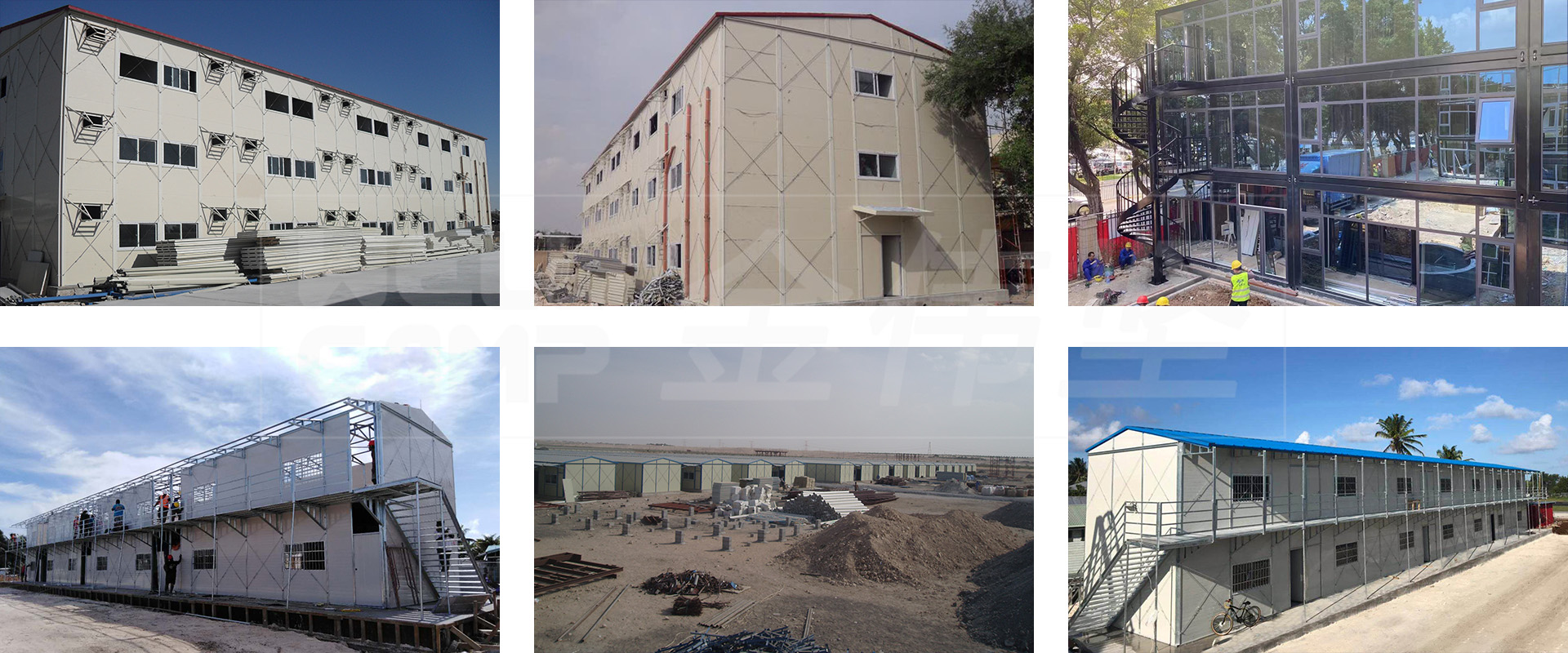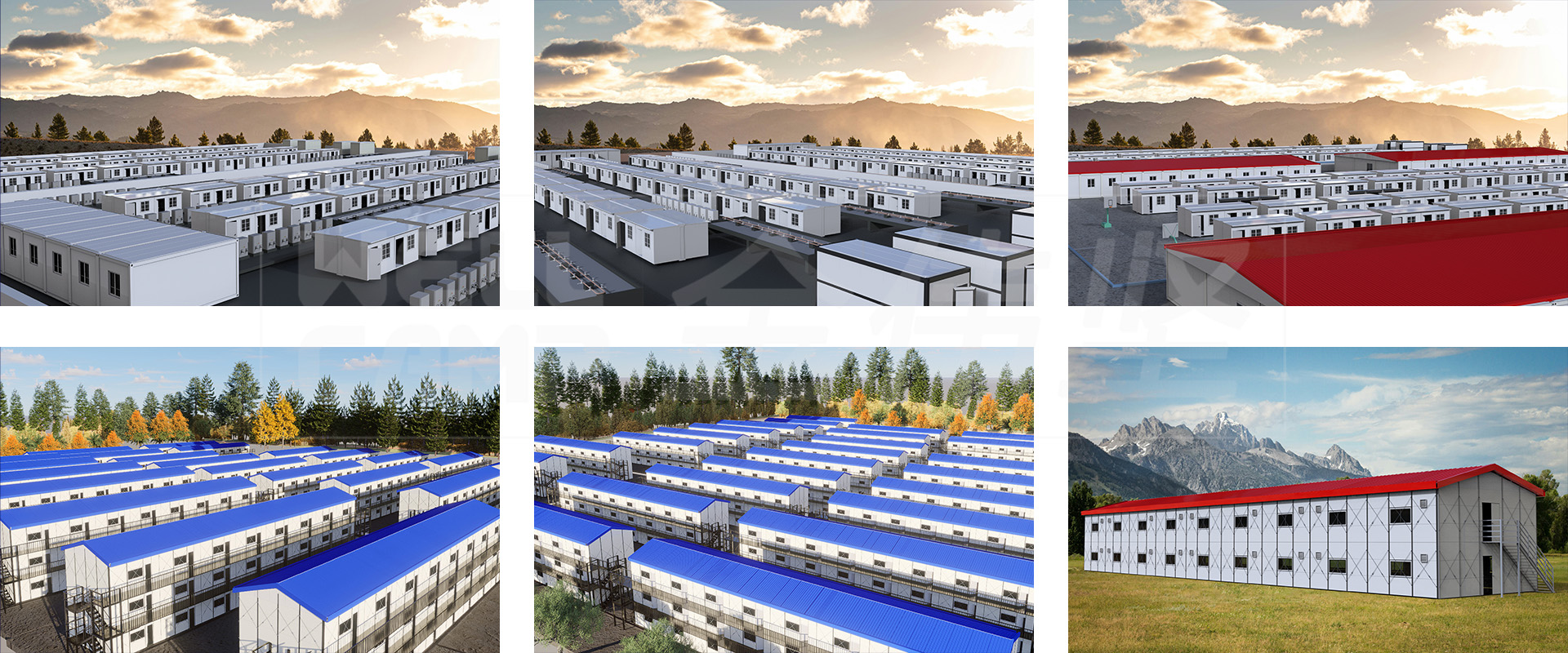Reconstruction Projects to Enhance Temporary Accommodation Standards Across Industries
In today's rapidly changing world, the demand for temporary accommodation has surged across various sectors, from construction and mining to emergency relief and military operations. The growing need for safe, efficient, and adaptable living spaces has placed pressure on industries to innovate and enhance the standards of temporary housing. Reconstruction projects focusing on the improvement of these temporary accommodations are becoming crucial, with companies like WELLCAMP at the forefront of this transformation.
The Importance of Temporary Accommodation in Industry
Temporary accommodation plays a critical role in many industries, particularly those requiring large workforces to operate in remote or harsh environments. In construction, for example, workers are often required to live on-site for extended periods, and providing them with adequate living conditions is essential for both their well-being and productivity. Similarly, in oil and gas extraction, mining, and emergency disaster relief, robust and secure temporary housing ensures that workers and displaced populations can maintain their focus and work in a safe environment, free from the challenges of inadequate facilities.
However, traditional temporary housing solutions often fall short in providing comfort, security, and long-term sustainability. These shortcomings have prompted a push for reconstruction projects that emphasize the upgrading of accommodation standards across various industries.
The Need for Reconstruction Projects
Temporary accommodation has traditionally been seen as a short-term solution to address urgent needs. However, as the demand for better living conditions grows, temporary accommodations must evolve to meet the ever-changing demands of industries. Several key areas require improvement:
1. Comfort and Livability : Workers who live in temporary accommodations for extended periods often face difficult living conditions, including poor insulation, cramped spaces, and inadequate amenities. Reconstruction projects should focus on increasing the space available to each worker, improving insulation, and adding amenities like air conditioning, high-quality flooring, and better lighting. These improvements not only make life more comfortable but also contribute to the health and morale of workers.
2. Safety and Security : Safety is a top priority, especially in industries like oil and gas, where workers may be stationed in hazardous locations. Reconstruction projects should upgrade temporary accommodations with advanced safety features, such as fire-resistant materials, secure entry points, and reliable emergency exits. Furthermore, security measures such as surveillance cameras and fencing should be incorporated to protect workers and their belongings.
3. Environmental Sustainability : Temporary accommodation projects should align with environmental sustainability goals. By incorporating eco-friendly materials and energy-efficient technologies, such as solar panels, rainwater harvesting systems, and low-energy lighting, these projects can help reduce the environmental footprint of temporary housing. This is especially important in industries where long-term sustainability is a key concern.
4. Modular and Scalable Solutions : One of the most effective approaches to enhancing temporary accommodation is through modular and scalable solutions. Modular housing, which can be quickly assembled and reconfigured based on specific needs, is perfect for industries that require flexible and adaptable living spaces. By incorporating expandable and foldable structures, reconstruction projects can offer housing that is both cost-effective and efficient, without compromising on quality.
5. Health and Wellness : A key concern in temporary accommodation is the health and well-being of workers. Reconstruction projects should consider factors such as air quality, hygiene facilities, and access to medical services. Offering more accessible healthcare amenities, clean water, and well-maintained bathrooms can go a long way in preventing health issues and boosting worker productivity.
How WELLCAMP is Leading the Way
WELLCAMP, a leader in modular and expandable container solutions, has been instrumental in driving improvements in temporary accommodation standards. The company’s vast experience in constructing temporary housing for large-scale projects has allowed it to design and deliver tailored solutions that address the specific needs of workers in diverse environments.
With WELLCAMP’s foldable and flat-pack container houses, industries can offer temporary accommodation that is easy to transport, assemble, and modify. These solutions allow businesses to scale up or down based on project requirements, while also ensuring the highest standards in terms of comfort, safety, and sustainability.
PRODUCT LINE
Tailored Camp Solutions to Meet Custom Needs












